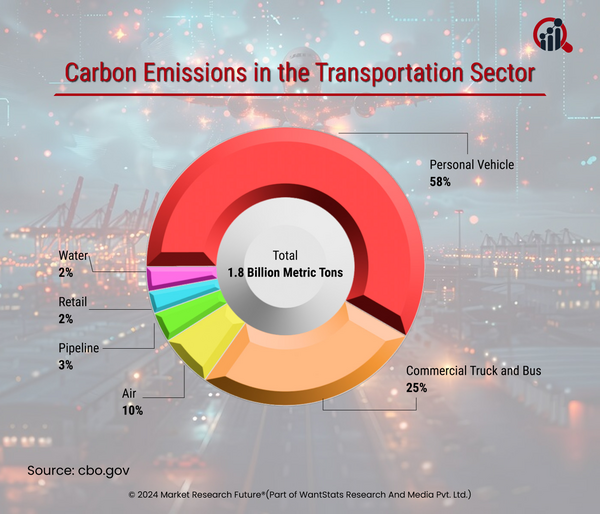Transportation Contributes More Carbon Emissions in the Environment
The world energy sector experiences various changes in the era of the clean energy transition. The transformation focuses mainly on decarbonization to attain net zero emissions. In 2024, the transportation sector will witness the highest carbon emissions leading to pollution. The harmful emissions from the transportation sector are greenhouse gas emissions.
According to a survey, transportation is the major contributor to environmental pollution. It is also responsible for the highest amount of carbon emissions in the environment. Survey data shows that transportation accounts for over a quarter of the world's carbon emissions in 2024. In the United States, greenhouse gas emissions from the transportation sector account for 27 percent in 2024. Vehicle emissions are reported to be the highest in amount among the types of emissions from the transportation sector in urban areas. Other surveys show that car emissions contribute the highest amount of carbon emissions in 2024.
Similarly, California is all set to reduce emissions by the end of 2030 by 50 percent. Therefore, the nation sets up several methods for decarbonization that can contribute towards net zero emissions. Along with the United States, the European Union targets reducing carbon emissions by up to 60 percent by 2050.
Experts claim that specific initiatives can reduce the level of environmental emissions. The shift in the transportation sector towards electric mobility can solve the carbon emission issue in a particular industry. However, it is practical to some extent as electric vehicles charging infrastructure, affordability, and consumer preference matter considerably. Carbon capture can come to the rescue as the method promotes storing carbon from emissions in various ways. Encouraging walking and cycling for the netizens can also solve some of the problems. Therefore, transportation can reduce emissions by adopting different sustainable methods.






